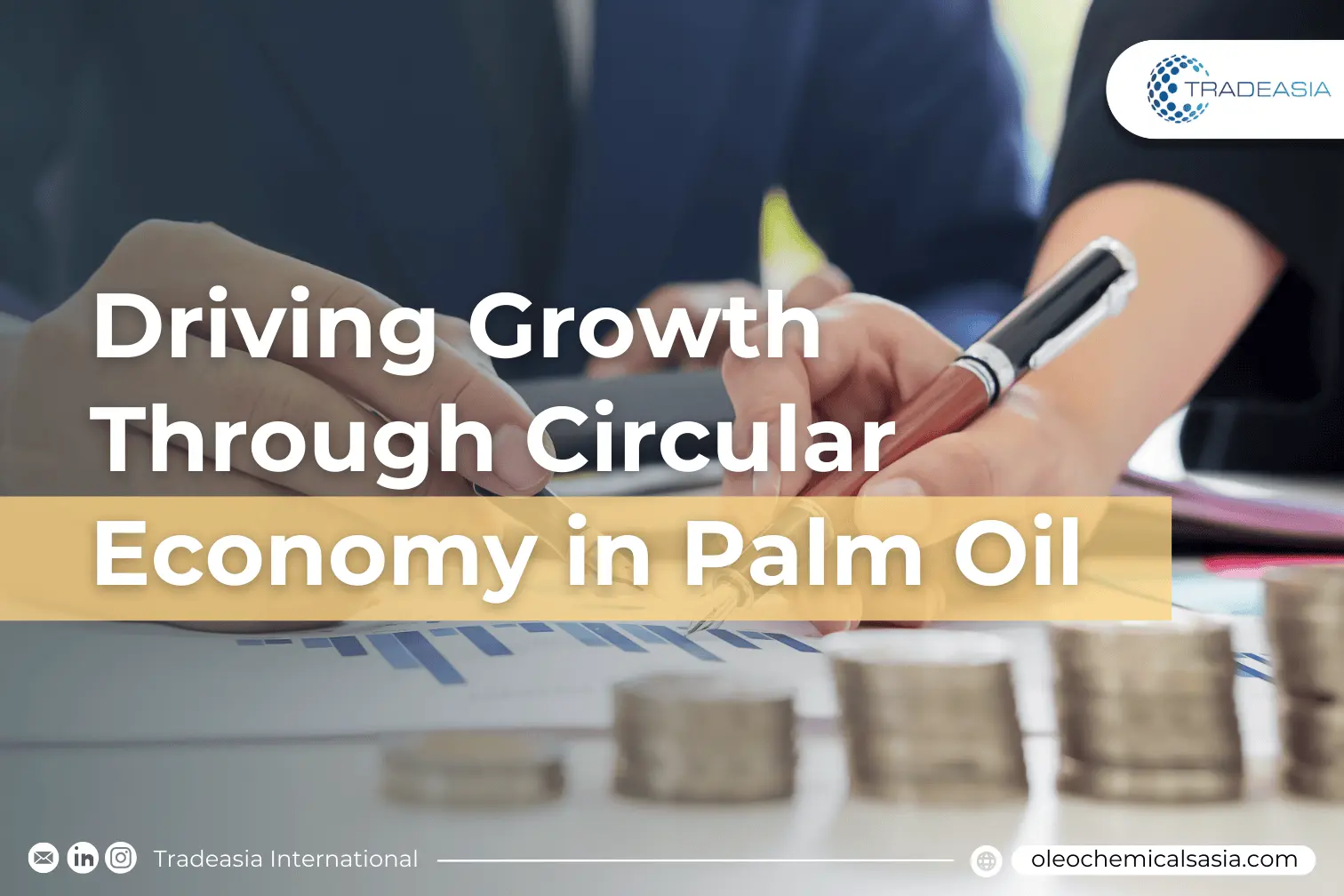Article
25 August 2025
Driving Growth Through Circular Economy in Palm Oil
Palm Derivatives

Table of Content
- Unlocking Value from By-Products for a Competitive Edge
- Setting a Global Benchmark for Green Growth
Article
25 August 2025
Palm Derivatives

The palm oil industry is undergoing a profound shift as it increasingly embraces circular economy principles. By transforming by-products once considered waste—such as Palm Fatty Acid Distillate (PFAD), glycerin, and palm kernel cake—into high-value oleochemicals, biofuels, and bioplastics, the sector is aligning closely with global sustainability goals. This transition reduces waste, lowers carbon footprints, and creates renewable alternatives that are redefining how palm oil is valued within international markets.
At the core of this movement is the focus on zero-waste operations and waste valorization at plantations and mills. Residues once seen as a burden, including palm oil mill effluent (POME) and empty fruit bunches (EFB), are now being repurposed into energy and valuable products. A notable example is the treatment of POME through anaerobic digestion, which generates biogas capable of replacing fossil fuels while sharply reducing greenhouse gas emissions. Beyond environmental benefits, these solutions enhance cost efficiency and provide additional revenue streams for growers and smallholders, proving that sustainability can go hand-in-hand with profitability.
The industry’s ability to extract value from PFAD, glycerin, and palm kernel cake is accelerating the growth of downstream applications. These by-products are increasingly converted into renewable oleochemicals that serve critical roles across sectors such as cosmetics, pharmaceuticals, detergents, and lubricants. By substituting petrochemical derivatives with sustainable alternatives, companies strengthen their role in decarbonizing global chemical supply chains. Furthermore, palm kernel cake is finding growing relevance as feedstock for bio-based composites and bioplastics, supporting demand for sustainable packaging solutions worldwide.
Recent market data from 2024–2025 highlights rising demand for palm-based derivatives in both green chemical and biofuel markets. With Indonesia and Malaysia at the forefront, government incentives and certification schemes are accelerating technology adoption and establishing higher standards of circularity. This positions producers to meet the expectations of export markets, where buyers increasingly prioritize sustainably sourced inputs. Case studies show advanced biorefineries integrating refinery waste and biomass to produce biodiesel, bioethanol, and functional bio-based ingredients, with digital technologies and Industry 4.0 tools now central to optimizing processes and tracking environmental impact in real time.
The environmental outcomes are significant. Converting POME into biogas reduces methane emissions—a greenhouse gas 20 times more potent than CO₂—while reutilizing palm biomass minimizes landfilling and combustion, lowering both emissions and pollution risks. Economically, this diversification strengthens business resilience by opening new revenue channels and broadening product portfolios. It also aligns with the UN Sustainable Development Goals (SDGs 9, 12, and 13), reinforcing the industry’s contribution to responsible consumption, climate action, and innovation.
The circular economy transition in palm oil is no longer just a sustainability initiative—it is becoming a driver of long-term competitiveness. By converting what was once discarded into renewable oleochemicals, biofuels, and bioplastics, companies are unlocking new opportunities for growth while enhancing their environmental credentials. This dual advantage positions the palm oil sector as a global benchmark for green industrial transformation, where innovation, profitability, and sustainability are no longer at odds but fundamentally interconnected.
We're committed to your privacy. Tradeasia uses the information you provide to us to contact you about our relevant content, products, and services. For more information, check out our privacy policy.
Leave a Comment